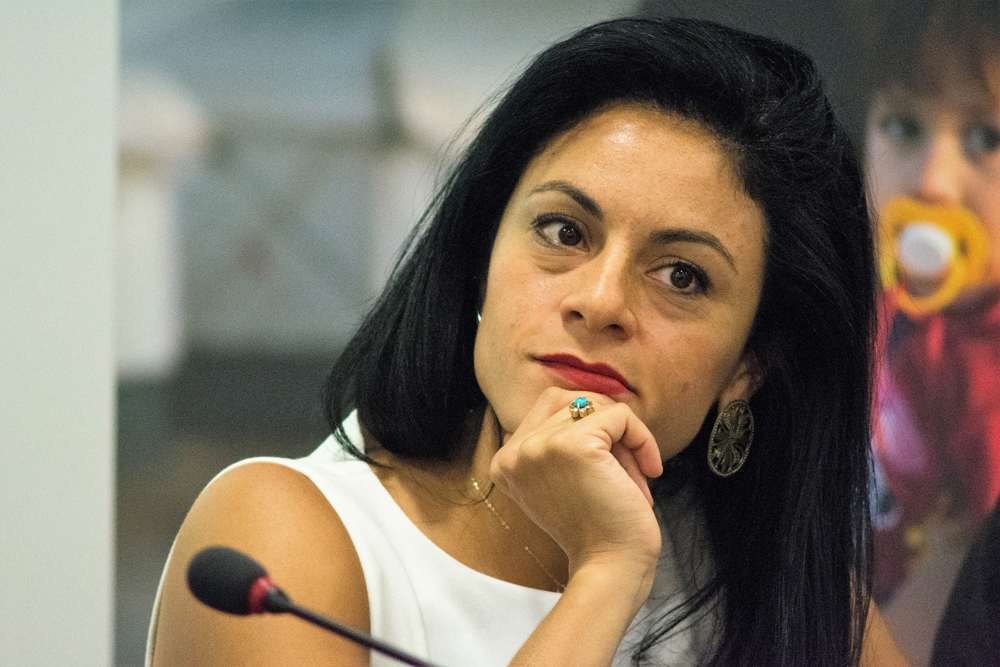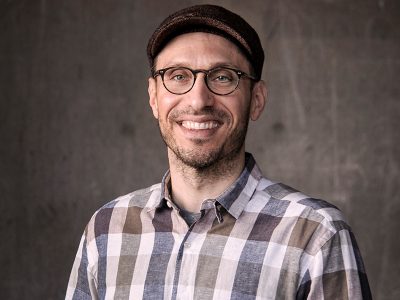This profile was part of the Faculty of Public Affairs’ 75 for the 75th series, which highlighted 75 notable alumni in FPA in honour of Carleton University’s 75th anniversary. These stories were published in 2016 and 2017.
Director, IRIN News
Bachelor of Journalism (’06)

Heba Aly recalls one of the first times she questioned the dominant international narrative about a humanitarian crisis. She was in Sudan as a freelancer to cover the crisis in Darfur, but was surprised to find business as usual in the capital city of Khartoum.
“People were sitting in cafés, smoking shisha and no one was talking about it. Meanwhile, there was a large international lobby to hold the Sudanese government accountable for war crimes,” recalls Ms. Aly, one of only a handful of foreign journalists in the country at the time. “It was destabilizing at first, but when I started to dig into the conflict itself, it got more complex. It wasn’t just an Arab government attacking Africans, but a competition for the control of resources.”
She found similar complications in countries like Syria, in the midst of a war, and Egypt, during its revolution, where the strong international narrative focused on “big bad governments.”
“I found I didn’t know what to believe because the narrative was often driven by people who are disconnected from the situation and have their own interests,” she says. “It’s very lonely being the only one to report about something. Most journalists don’t want to go out on a limb by themselves.”
But as a reporter for IRIN News, Ms. Aly was expected to deliver more than status quo journalism.
Originally funded by the United Nations, IRIN initially stood for “Integrated Regional Information Networks.” It is now an independent nonprofit that “reports about humanitarian crises that are underreported and misunderstood, and amplifies the voices of those most affected.” It publishes a free newsletter on the crises of the day.
When Ms. Aly’s father placed a brochure about an internship at IRIN on her desk, it seemed like a perfect fit for her, with her double major in journalism and human rights.
Up until then, she was paying her dues in Canadian newsrooms: working short stints at CBC in Ottawa and Toronto, at the Toronto Star, and the Montreal Gazette. After interning with IRIN in Senegal and then traveling to Chad, she returned to Canada, but was soon making plans to travel to Sudan as a freelancer.
“One of my editors said I should spend more time learning skills in a Canadian newsroom,” Ms. Aly recalls. “But if you work your way to becoming a foreign correspondent up the normal chain, the ladder is such a long one and so few people get to the end. You have to create your own opportunities.”
Not only did she challenge the traditional narrative in Sudan, but Ms. Aly uncovered a different story about what was happening in Egypt during the Arab Spring in 2011.
“The international media were focused on this wonderful revolution, but when I talked to people in the poorer neighbourhoods, they were suffering as a result,” she says. “The protest was driven by young rich kids.”
She produced the story for CBC Radio’s The Current, which was one of many news outlets “open to a counter-intuitive story that helped you see things in a different way.”
Today, as director of IRIN, Ms. Aly is focused on finding ways to fund high-quality journalism sustainably. She says the skills she learned in the School of Journalism are still applicable.
“It’s amazing how transferable journalism skills are: the synthesizing of information and the ability to clearly articulate it,” she says. “I know many alumni who are better at their careers having studied it.”
Aside from the need to find funding for high-quality journalism, Ms. Aly says she grapples with an even larger concern: that the rest of the world will stop paying attention.
“That keeps me up at night. When people don’t understand, they feel helpless and they tune out,” she acknowledges. “But we have to help them understand that a refugee in Kenya has the same human needs they do. The journalist’s job is to help people understand one another.”
Monday, April 17, 2017 in #FPA75, Career Paths, Journalism
Share: Twitter, Facebook



